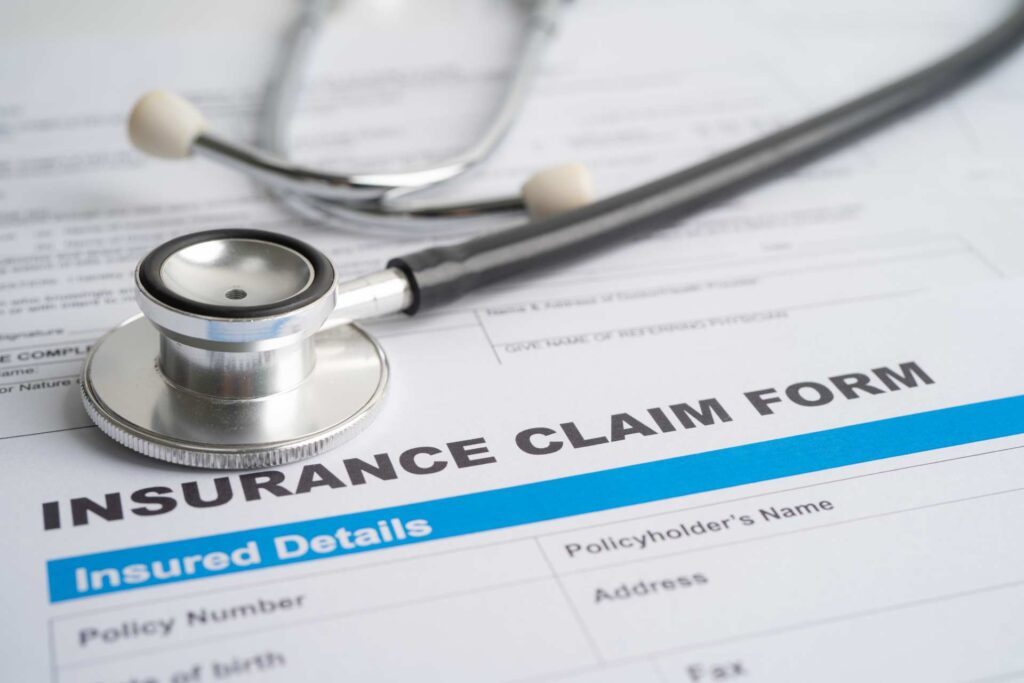When you’re in a car accident, one of the most pressing questions is: how long after an accident do you have to file a claim? The timeframe for filing can vary depending on your insurance policy and state laws, but it’s important to take action quickly. Filing a claim soon after the accident can prevent complications, like a denied claim or difficulties gathering evidence. Even if you’re feeling uncertain, rest assured—there are steps you can take, and resources available to help guide you through the process. Check out what to do after a car accident.
Factors That Affect How Soon You Should File a Claim
There are several factors that determine how quickly you should file a claim after a car accident. While it’s tempting to delay, waiting too long can complicate the process. Understanding these factors can help you make informed decisions:
- State Laws: Each state has its own guidelines for how long you have to file a claim. In Georgia, for example, you generally have two years to file a personal injury claim and four years for property damage. However, your insurance company may have a much shorter window.
- Severity of the Accident: The more serious the accident, the sooner you should file a claim. If injuries are involved, medical bills will start adding up quickly, and getting compensation sooner can help ease financial stress.
- Insurance Policy Terms: Insurance companies often require that claims be filed “promptly” or within a specified period after an accident. This timeframe is typically outlined in your policy, so it’s important to review it.
- Gathering Evidence: Time is crucial for gathering evidence. Photos, medical records, and witness statements are more reliable when collected immediately after the accident. The longer you wait, the more difficult it can be to secure this information.
Symptoms to Watch Out For After a Car Accident (especially when filing a claim)
- Headaches or dizziness
- Neck or back pain
- Numbness or tingling in limbs
- Difficulty concentrating
- Unexplained fatigue
These symptoms could indicate underlying injuries, making it even more critical to file a claim promptly to ensure medical treatment is covered.
How Do I Make a Claim After a Car Accident?
Filing a claim after a car accident can seem overwhelming, but breaking it down into simple steps can make the process more manageable. Here’s a step-by-step guide:
- Notify Your Insurance Company: Contact your insurance provider as soon as possible to inform them about the accident. Many companies offer online or phone options for reporting claims, making the process convenient.
- Gather Evidence: Collect essential documents such as the police report, photos of the accident scene, medical records, and any witness statements. The more thorough your documentation, the smoother your claim process will be.
- Complete the Claim Forms: Your insurance company will ask you to fill out a series of forms, detailing the accident and any injuries or damages. Be accurate and detailed when filling these out to avoid delays.
- Submit Documentation: Along with the claim forms, submit the supporting documents you’ve gathered. This may include repair estimates, medical bills, and proof of lost wages if you were unable to work due to the accident.
- Follow Up: Stay in touch with your insurance adjuster and be responsive to any requests for additional information. This ensures your claim doesn’t stall in the process.
Remember, accuracy and timeliness are essential when filing a claim. Mistakes or missing information can lead to delays, or worse, denial of your claim.
What Happens If You Wait Too Long to File a Claim?
Delaying your claim can have significant consequences. Most insurance companies require that claims be filed within a reasonable timeframe, which is often stated in your policy. Waiting too long can lead to:
- Claim Denial: If you miss the filing deadline set by your insurance policy or state law, your claim could be denied, leaving you responsible for all medical bills and repair costs.
- Reduced Payout: Some insurers may reduce the amount they’re willing to pay if a claim is filed late. They may argue that the delay made it harder to assess the damage accurately.
- Difficulty Gathering Evidence: As time passes, it becomes harder to collect evidence. Witnesses may forget details, and physical evidence like skid marks or vehicle damage may disappear, weakening your case.
Real-world examples highlight the importance of timely claims. For instance, if you wait several months to file, insurance adjusters may question the severity of your injuries or the extent of the vehicle damage. Acting sooner ensures your claim is taken more seriously.
Common Mistakes to Avoid When Filing a Claim

Filing a car accident claim involves several steps, and even small mistakes can create big problems. Avoid these common errors to ensure a smoother process:
- Not Filing on Time: Failing to report the accident within the required timeframe is one of the most common mistakes.
- Providing Incomplete Information: Omitting details about the accident, injuries, or damage can lead to delays or denials.
- Admitting Fault: Never admit fault to the other driver or the insurance company. Let the adjusters determine liability based on the facts.
- Skipping Medical Treatment: If you’re injured, get medical treatment right away. Failing to seek immediate care can weaken your claim and your health.
- Not Following Up: Don’t assume your claim is progressing smoothly without checking in. Contact your adjuster to ensure everything is moving forward.
How to Use a Car Accident Compensation Calculator to Estimate Your Claim
One helpful tool available to you is the car accident compensation calculator. This tool allows you to estimate the potential value of your claim based on factors like:
- Medical expenses
- Lost wages
- Vehicle damage
- Pain and suffering
By entering information about your accident and injuries, the calculator can give you a clearer idea of what to expect in terms of compensation. Using this tool can make the process less overwhelming by providing you with a ballpark figure before you even file your claim.
You can access AICA Orthopedic’s Car Accident Compensation Calculator to get started on understanding your potential compensation.
FAQs on Car Accident Claims
Do I Have to File a Claim After an Accident?
No, you’re not legally required to file a claim after every accident. However, it’s usually in your best interest to do so, especially if there are injuries or significant vehicle damage.
Can I File a Claim If the Accident Was My Fault?
Yes, even if you were at fault, you can still file a claim. Your insurance policy will cover damages according to its terms, although your rates may increase.
What Should I Do If My Claim Is Denied?
If your claim is denied, contact your insurance company to understand the reason. You may need to provide additional evidence or consult with an attorney to appeal the decision.
How AICA Orthopedics Helps Car Accident Victims with Insurance Claims
At AICA Orthopedics, we understand how overwhelming it can be to manage medical recovery and insurance claims after a car accident. Our team of specialists, including orthopedic doctors, neurologists, chiropractors, physical therapists, and more is here to help you recover from injuries like whiplash, back pain, and more. We work directly with insurance companies to ensure your claims are processed efficiently and that you receive the care you deserve without financial stress.
If you’ve been in a car accident and are struggling to manage your claim or recover from injuries, contact the nearest AICA Orthopedics today. We’re here to guide you through both your recovery and the insurance process, ensuring you get the best care and compensation possible.


